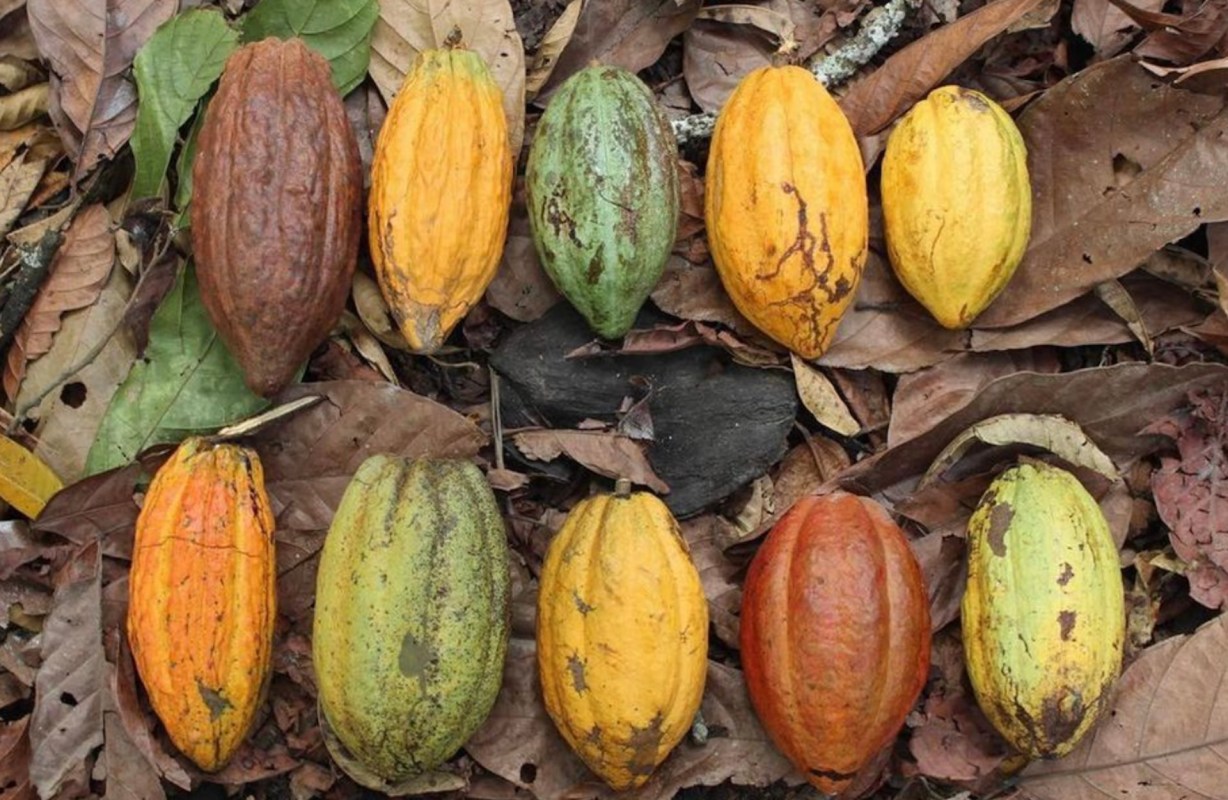There's a sweet new offering in the chocolate industry: Bird-friendly cocoa.
Developed by the team at the Smithsonian's Migratory Bird Center, the Bird Friendly cocoa certification is helping cacao growers operate in a bird-friendly way. Certified Bird Friendly farms preserve biodiversity and grow healthier, hardier plants, enabling them to produce delicious chocolate more sustainably (chocolate lovers, rejoice).
Most cacao is farmed via a method called intensified full-sun monocultures, where forested land is cleared to make way for rows of cacao plants. Unfortunately, this eliminates the native vegetation in an area, which in turn leaves wildlife stranded with neither a food source nor a home. These monocultures deplete bird populations by a factor of four, according to Smithsonian ecologist Ruth Bennett.
To change that, Bennett and her colleagues created the new certification, which will be awarded to farmers who either grow their cacao under a canopy of native trees or who keep a certain percentage of their land fully forested. Zorzal Cacao was the first grower to earn the title, and the Bird Friendly team is hoping that more farmers will follow their lead.
There's plenty of reason for them to do so.
With monoculture, cacao plants can only survive for about 20 years before they need to be moved. This often necessitates more deforestation, and it leaves the soil ridden with pesticides and depleted of natural resources. Additionally, while shade-grown cacao produces a slightly lower yield, farmers can recoup their investment with a higher price for the finished product.
Watch now: These futuristic gas stations could completely change what it's like to own an EV
"The value to the farmers is much higher, and the overall sustainability of the farm system is also much higher," said Bennett.
Zorzal's founder, Charles Kerchner, agreed. With this system, he said, "Consumers are benefiting, farmers are benefiting, and producers are benefiting."
There have been similar pushes for sustainability in the coffee industry, which has faced similar criticisms for its high rates of deforestation. Some groups have found new uses for typically discarded parts of coffee plants, such as turning them into carbon-sequestering biochar or creating another caffeinated drink. Some have focused on other stages of the supply chain, such as creating a coffee brand with purely compostable packaging.
And for those with a sweet tooth, Bird Friendly chocolate tastes just as good … or even better. "They're like light-years beyond what you just normally buy in the grocery store," says Bennett, "so I would say your taste buds will thank you."
TCD Picks » Quince Spotlight

Join our free newsletter for cool news and actionable info that makes it easy to help yourself while helping the planet.













